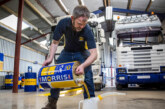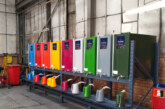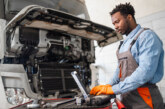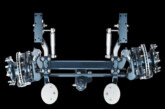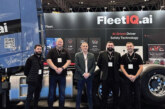How to decabornise the cooling system
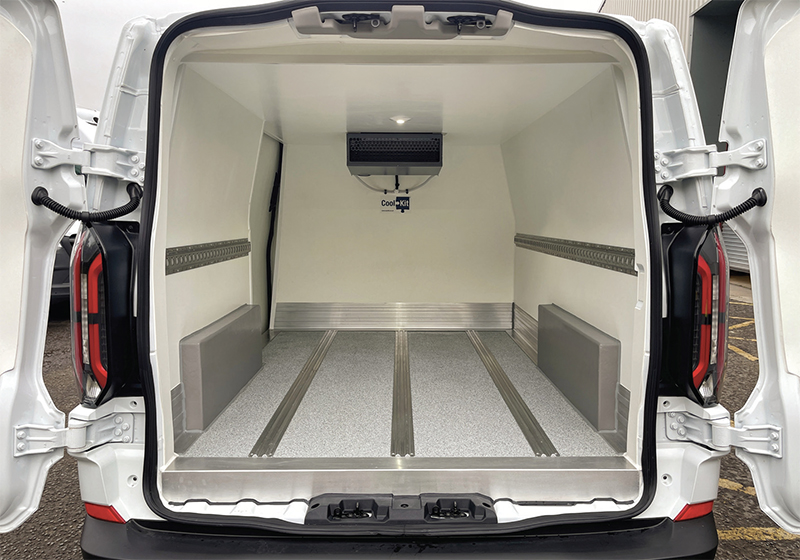
Is refrigeration the cold chain’s blind spot in the fight for Net Zero? CoolKit, provider of equipment for producing temperature-controlled and refrigerated LCVs, argues that it is and tells CVW about the partnership that could help change this.
As the electrification of light commercial vehicles gathers pace across the UK, with new models entering the market and infrastructure slowly catching up, one element of the temperature-controlled commercial vehicle ecosystem has remained largely untouched by the drive to decarbonise – transport refrigeration.
The refrigeration systems used to maintain cold chain integrity continue to rely heavily on fluorinated greenhouse gases, commonly known as F-gases.
These synthetic refrigerants, including R452a, pose a significant threat to the environment. With a global warming potential often exceeding 2,000 times that of carbon dioxide, their contribution to climate change is both significant and long-lasting.
These gases routinely leak during installation, through wear and tear, and in everyday operation. Even modest losses, when scaled across a national cold chain fleet, equate to a substantial and ongoing release of super-pollutants into the atmosphere.
Regulatory bodies are taking action. The EU F-Gas Phase Down and the proposed GB F-Gas Regulation highlight a growing consensus: high-GWP refrigerants are fundamentally incompatible with long-term climate goals.
Yet, despite this, most refrigerated LCVs entering service today – both battery electric-powered and diesel – continue to have these legacy systems. The result is a growing mismatch between the trajectory of greener vehicle innovation and the reality of refrigeration practice – a structural misalignment that risks undermining the credibility of net-zero fleet strategies.
The cold chain industry stands at a pivotal juncture. It must now reframe refrigeration not as an afterthought, but as a core enabler, or limiter, of Net Zero. Doing so requires more than a technical upgrade; it calls for a complete design rethink of how cooling is integrated into modern fleet operations.
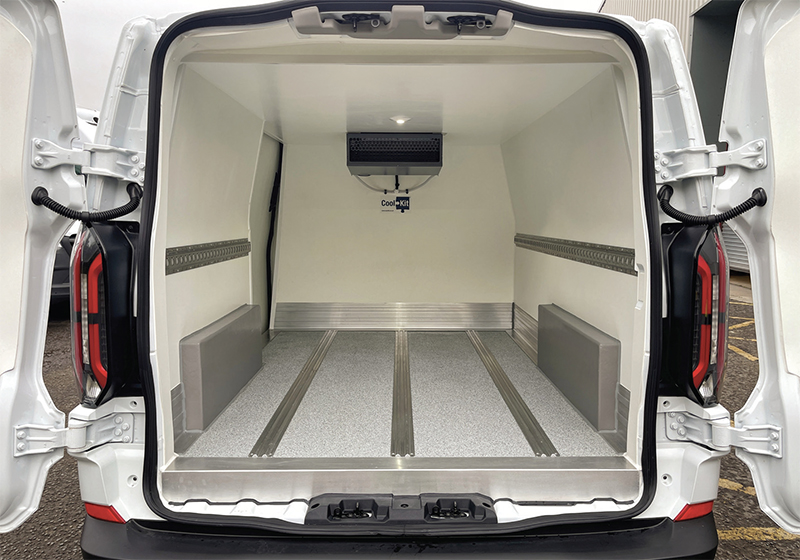
Emission-free refrigeration
Against this backdrop, a new solution is already emerging in the market. pbx’s ecos M24 represents a step change in how the industry can approach temperature control.
Rather than seeking marginal improvements to existing systems, pbx has built a transport refrigeration unit from the ground up that eliminates the need for Fgases entirely. At the heart of this system is R290 propane, a natural refrigerant with a global warming potential of just 3. It’s already well established in fixed installations across the food retail and pharmaceutical sectors.
pbx has successfully adapted this low-impact solution for mobile, urban, and high-demand environments.
The ecos M24 is a sealed system, with no need for refrigerant top-ups, no requirement for leak checks and no specialised training for service technicians.
Controlled wirelessly and installed without intrusive dashboard controllers, it reduces workshop time while supporting rapid conversion cycles. In a sector where skilled labour is increasingly stretched, and uptime is critical, this is nothing short of transformative.
Scaling the transition
What makes this solution particularly impactful in the UK is its exclusive distribution through CoolKit, a longstanding leader in temperature-controlled van conversions.
CoolKit’s engineering expertise and market reach provide a platform to deliver pbx’s technology at scale, backed by technical integration support and fleetfocused advisory. The partnership between pbx and CoolKit aims to bring together complementary strengths: refrigeration design with practical, real-world delivery capability. It also signals a willingness to collaborate beyond proprietary boundaries, not to gatekeep the technology but to make it widely available to converters who share the goal of a truly zero-emission cold chain.
Compliance to complete advantage
For fleet operators, this convergence of sustainability, efficiency and simplicity unlocks clear advantages. Eliminating Fgases not only addresses an urgent environmental issue but also removes a future regulatory and servicing liability.
Propane’s superior thermodynamic performance supports stable temperature control, even in variable urban conditions. And by reducing weight and complexity, the pbx unit can also deliver meaningful payload and energy efficiency gains – translating into real-world operational savings. But perhaps most importantly, this technology provides an opportunity to future-proof fleet investments.
As emissions standards tighten and corporate ESG scrutiny intensifies, systems that proactively eliminate climate change contributors will be essential.
For cold chain logistics to meet the demands of sustainability, public health and urban air quality, refrigeration must evolve in parallel. Those who move early will help to define the standard for what a truly modern, emissions-free fleet looks like.
The blind spot is becoming a focal point, and that’s exactly where the future begins.




